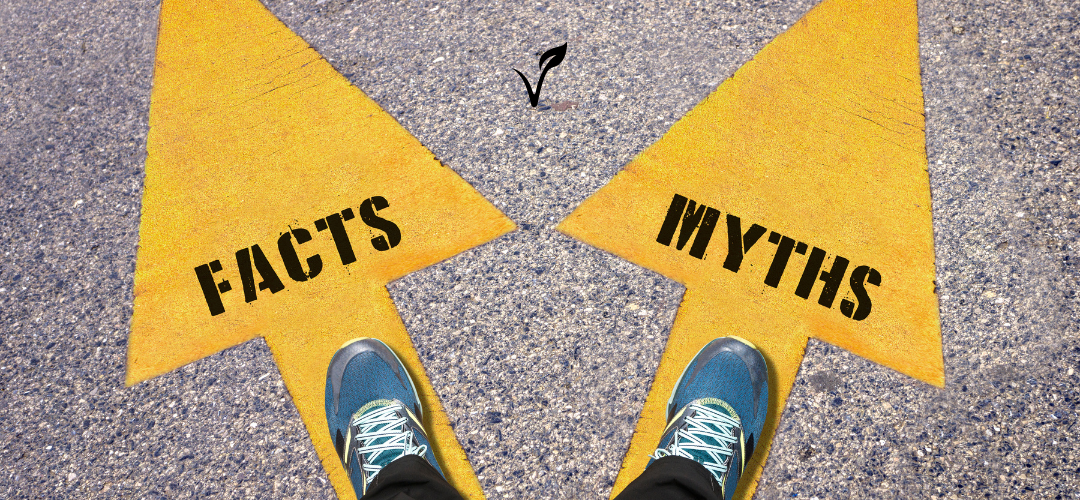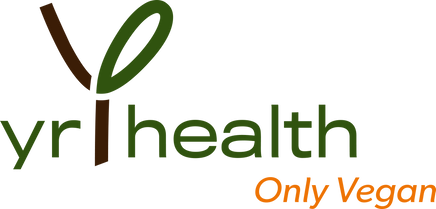on Orders over £25

Debunking 5 Common Myths About Vegan Supplements
As the vegan diet and lifestyle continues to grow in popularity, so do the various types of supplements that support it. However, myths and scepticism around vegan supplements still remain, causing the spread of harmful misinformation. This can make it difficult for people to identify trustworthy supplements and understand what to look out for. This article debunks five of the most common myths that circulate about vegan supplements.
Myth 1: "Vegan supplements are less effective than traditional supplements"
The misconception that vegan supplements are less effective than traditional supplements stems from the belief that plant-based sources may not provide the same nutritional value as animal-derived products. However, this is not supported by evidence. Studies have shown that vegan supplements can be just as effective as their non-vegan counterparts in delivering essential nutrients. For example, research indicates that plant-based proteins can effectively support muscle growth and recovery, similar to animal-based proteins.
Additionally, vegan supplements often come with unique benefits. For example, Peruvian Andes Maca Root is thought to improve male fertility and may also boost sex drive in both men and women. Vegan supplements also tend to have a lower environmental impact and are free from animal by-products, aligning with ethical and sustainable lifestyles.
Myth 2: "Vegan supplements are only for vegans"
The assumption that vegan supplements are only for vegans is a common misconception. While these supplements are certainly designed to meet the needs of those following a vegan diet, they are beneficial for anyone, regardless of their dietary choices. Vegan supplements provide essential nutrients that are often derived from plant-based sources, making them a great option for people with dietary restrictions, such as lactose intolerance or shellfish allergies, as they are free from common allergens.
Additionally, individuals with ethical concerns about animal welfare or those who prefer more sustainable options may find vegan supplements appealing. Others simply view them as a healthier or more attractive option when seeking to support their wellness goals. Anyone on any diet can benefit from vegan supplements. For example, we offer a vegan supplement tailored towards supporting the keto diet, and most people following a keto diet aren’t vegan.
Myth 3: "Vegan supplements are more expensive than non-vegan supplements"
The belief that vegan supplements are always more expensive than non-vegan supplements is not entirely accurate. While some vegan products may have a higher price point due to the sourcing of high-quality, plant-based ingredients, many vegan supplements are competitively priced. In fact, the growing popularity of plant-based diets has led to a wider variety of affordable options in the market. When comparing prices, it’s important to consider that both vegan and non-vegan supplements can vary in cost depending on factors like brand, formulation, and packaging.
To find affordable vegan supplements without compromising on quality, look for products with reasonable price points that also have third-party certifications like those from the Vegan Society and Made in Britain. Shopping online often results in lower prices as the products typically aren’t marked up in the same way they may be in a brick-and-mortar retail store. By researching and comparing brands, it’s possible to find high-quality vegan supplements at reasonable prices, making them accessible to a broader audience. At YrHealth, we’re proud to offer a broad range of affordable, high quality vegan vitamins and supplements.

Myth 4: "Vegan supplements are not as bioavailable as non-vegan supplements"
The concern about bioavailability—the body’s ability to absorb and utilise nutrients—is often raised with vegan supplements. Some believe plant-based nutrients are less bioavailable than those from animal sources, but this is not the case for most well-formulated products. Many vegan supplements are designed to ensure high absorption.
Iron fumarate is well-absorbed and commonly used in vegan supplements for its stable and bioavailable iron content. Similarly, vegan vitamin B12 in the form of methylcobalamin is known for its high bioavailability and effective absorption. Factors like the form of the nutrient and additional ingredients can also influence absorption. For instance, combining vitamin C with plant-based iron enhances its uptake. These elements show that vegan supplements, when properly formulated, can offer nutrients with excellent bioavailability, making them just as effective as non-vegan options.
Myth 5: "Vegan supplements are poorly regulated"
Concerns about the regulation and safety of vegan supplements often stem from the misconception that they are not as well-monitored as other products. However, vegan supplements can meet exceptionally high standards. For example, products with the Vegan Society certification provide assurance that they are free from animal ingredients and are suitable for vegans. Additionally, certifications like "Made in Britain" guarantee that supplements are produced locally under strict guidelines.
As members of Made in Britain, YrHealth products are manufactured in the UK to the highest standards. Our products are made in facilities that follow GMP standards and have received BRC accreditation (grade A) for global food standards. These certifications and manufacturing practices demonstrate that vegan supplements can be just as safe, well regulated, and high quality as any other type of supplement.
Key takeaways
Here are some key points to remember about vegan vitamins and supplements:
- Vegan supplements are just as effective as non-vegan versions, but quality and efficacy can vary between brands for both types of supplements.
- While vegan supplements are made with the vegan diet and lifestyle in mind, anyone can benefit from them.
- Vegan supplements are not inherently more expensive than non vegan supplements, and taking steps like shopping online and selecting brands with reasonable prices can further reduce the cost.
- The bioavailability of vegan supplements is not necessarily lower than their non vegan counterparts, and absorption rates are often enhanced by added ingredients that promote higher uptake like vitamin C.
- There are various regulations and quality markers that vegan supplements are subject to, meaning that consumers can shop with confidence from brands that adhere to strict guidelines, regulations, and practices.

